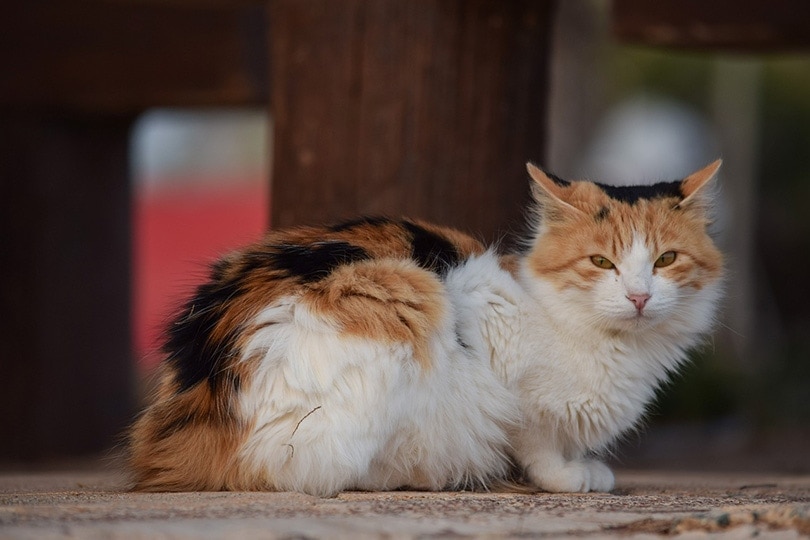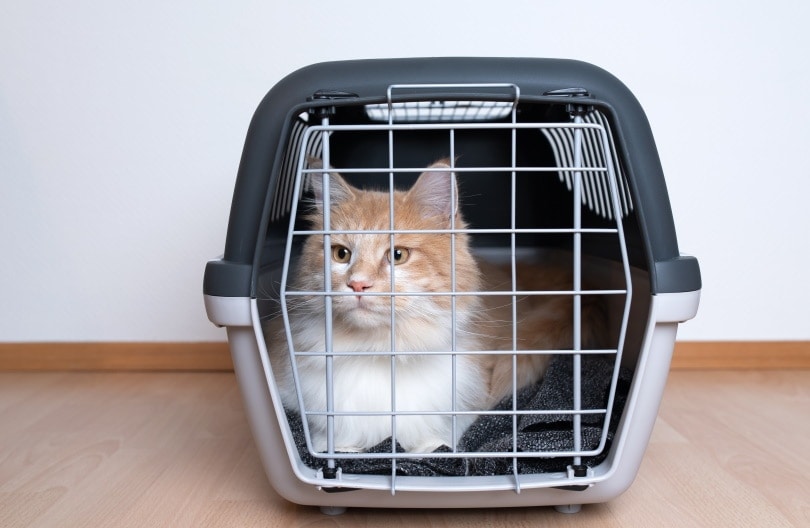Why Is My Cat’s Poop Watery? 12 Vet-Reviewed Reasons
Updated on
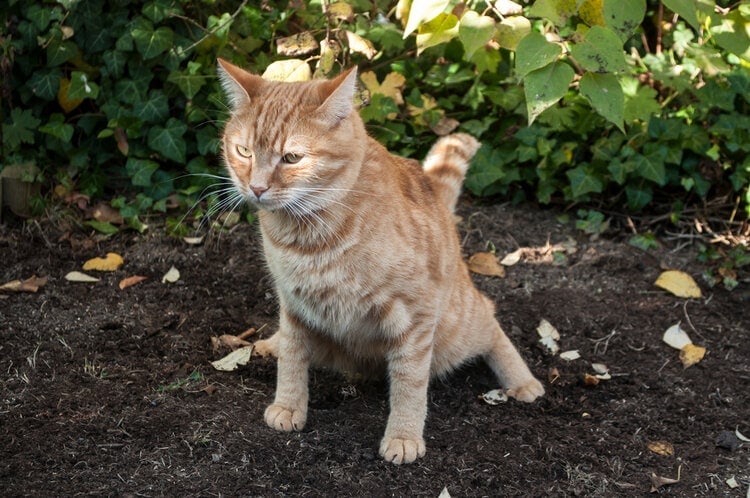
Cats can suffer from upset stomach and diarrhea just like us but noticing watery poop either inside or outside the litter box can be quite alarming. Diarrhea is a sign that something is not quite right and there are many different underlying causes, ranging from mild to severe, that could be the culprit.
With watery diarrhea, especially in large volumes; dehydration and electrolyte imbalance become a significant cause for concern. Here, we will discuss what could be causing your cat’s watery stool and the best course of action you can take. Diarrhea that is watery, frequent, and with no mucus or straining is often from the small bowel rather than the large bowel and can help narrow down the culprit.
The 12 Reasons Your Cat’s Poop Is Watery
1. Dietary Changes
Dietary changes are a very common cause of diarrhea in cats. There are many reasons you may choose to make a change in your cats’ food but in doing so, some side effects can occur. A proper transition is highly recommended when changing cat foods to help prevent any digestive upset, though even a slow transition may not eliminate side effects. It is always best to speak to your veterinarian before making any changes and to get some guidance in doing so.
Potential Side Effects of Dietary Changes:
- Lack of appetite
- Diarrhea
- Vomiting
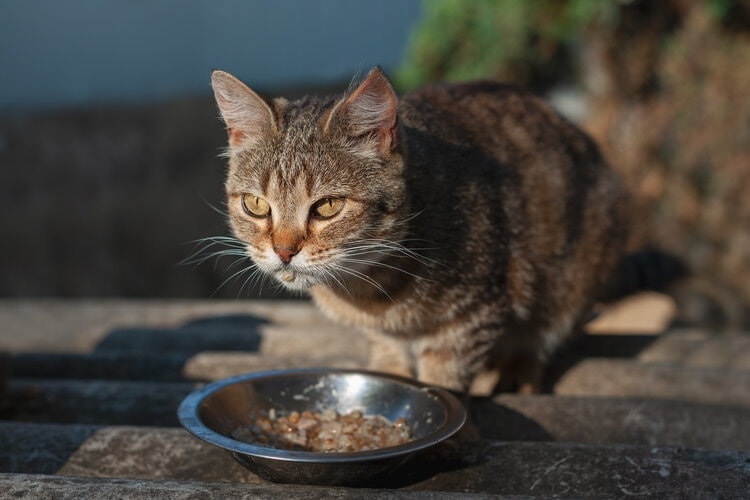
2. Infections
There are many infectious diseases that can cause watery diarrhea including viruses and bacteria. Some of these diseases can be vaccinated against such as feline parvovirus and others such as Salmonella cannot be. Often other symptoms are present such as vomiting or inappetence. If your pet is not feeling well, book an appointment with your veterinarian.
3. Food Allergies or Intolerances
Food allergies and food intolerances can cause a variety of symptoms, including diarrhea. While the two conditions have some similarities, they are completely different. Proper testing will need to be done by a veterinarian to diagnose and treat the specific condition.
Food Allergy
A food allergy is an abnormal immune response to an ingredient that is typically considered safe. Food allergies can affect both the gastrointestinal system and the skin. The most common food allergens observed in cats are chicken, beef, fish, dairy, and eggs.
Symptoms of Food Allergies:
- Chronic itching
- Inflammation and/or redness of the skin
- Excessive grooming
- Vomiting
- Diarrhea
- Frequent bowel movements
- Straining to defecate
Food Intolerance
Food intolerance describes any adverse reaction to food and can occur due to sensitivity to a certain ingredient, lack of digestive enzymes needed for certain foods, food poisoning, or even as the result of stress. Food intolerance can occur in cats of any age and is different from a food allergy.
Symptoms of Food Intolerance:
- Vomiting
- Diarrhea
- Flatulence
- Nausea
- Lack of appetite
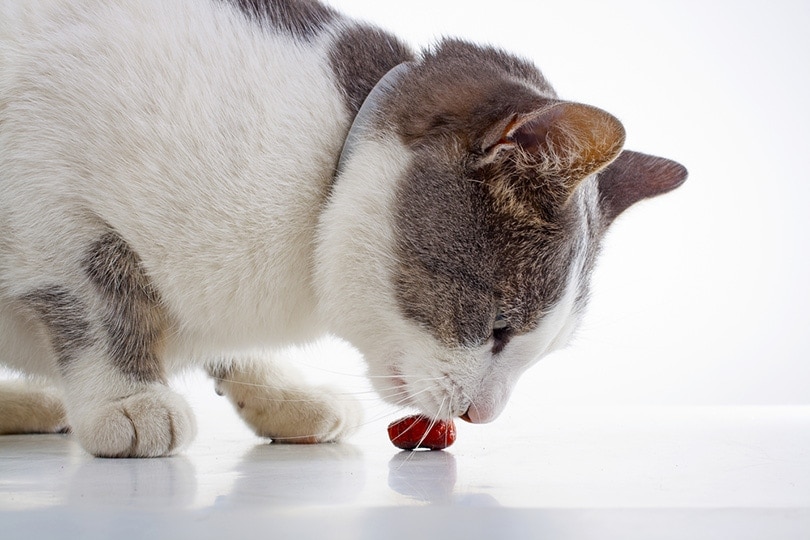
4. Gastrointestinal Parasites
Cats can easily fall victim to parasitic infection. Diarrhea is a common symptom when gastrointestinal parasites have infected the digestive system. Though several different types of parasites can infect the digestive system, the most common include roundworms, hookworms, tapeworms, and giardia.
These parasites can have devastating effects, especially on young, growing kittens if left untreated. If your cat is experiencing any symptoms of a parasitic infection, contact your veterinarian for proper treatment. They will also discuss a plan for preventative care once the treatment is completed successfully.
Symptoms of Gastrointestinal Parasites:
- Diarrhea
- Mucous or blood in stool
- Pale mucous membranes
- Potbellied appearance
- Lack of appetite
- Vomiting
- Coughing
- Visible parasites in the feces
5. Stress
Stress can certainly take its toll on the body and just like with humans, severe stress can cause a variety of different symptoms. Cats are very sensitive creatures that do not typically take well to changes in environment or routine.
Since stress results from many kinds of situations and underlying factors, it’s a good idea to think of ways to help your cat adjust to any foreseen circumstances. Since stress can also be a sign of underlying health conditions, it’s important to have them checked out by a veterinarian to rule out any health-related causes.
Signs Your Cat is Stressed:
- Isolation
- Excessive grooming
- Using the bathroom outside the litterbox
- Diarrhea
- Constipation
- Increased vocalization
- Lack of appetite
- Aggression toward people or other animals
- Increase in sleeping
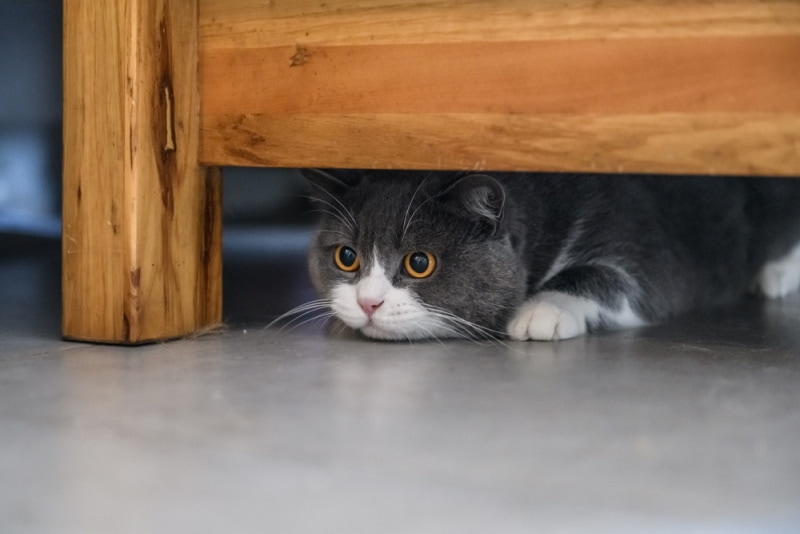
6. Side Effects of Antibiotics or Other Medications
While antibiotics and other medications are necessary for the treatment of other ailments, they are not without their side effects. It is not uncommon for cats to get a bout of diarrhea because of antibiotics or certain medications.
Rest assured that your veterinarian is only prescribing something when the benefits outweigh the risks. The staff will go over all the potential side effects of any medication that will be administered and will be available to you if any concerns were to arise. Keep in mind that not all medications will have the same side effects.
Common Side Effects of Antibiotics:
- Vomiting
- Nausea
- Diarrhea
- Bloating
- Abdominal pain
- Loss of appetite
7. Toxicity
Toxicity can occur by several different means including ingestion of a toxic substance, grooming off their coat, absorption through the skin, or even ingesting prey that has been poisoned. A cat’s smaller size and fewer liver enzymes make them highly susceptible to intoxication.
Cats can be poisoned by a wide variety of substances including food items, plants, and chemicals but is thankfully not very common. Diarrhea can be observed in cats that are experiencing toxicity. If your cat has ingested something that is potentially toxic or they are exhibiting any unusual symptoms, it’s important to contact your veterinarian immediately for further guidance.
Symptoms of Toxicity:
- Sluggishness
- Excessive salivation
- Heavy/rapid breathing
- Coughing, sneezing, and/or difficulty breathing
- Diarrhea
- Vomiting
- Redness, inflammation, and/or swelling of the skin
- Lack of coordination
- Seizures
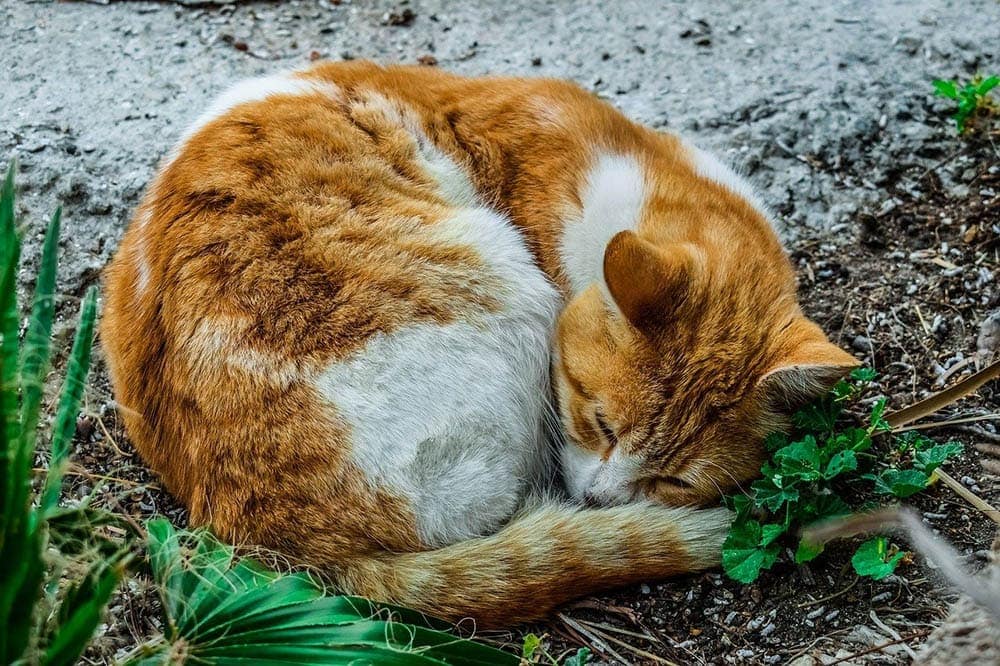
8. Inflammatory Bowel Disease
Inflammatory bowel disease or IBD is a condition where the gastrointestinal tract becomes chronically inflamed and irritated. Though inflammatory bowel disease can affect any part of the gastrointestinal tract, the most affected areas are the stomach and small intestines. Because the symptoms of inflammatory bowel disease are seen in many other conditions, diagnosis can involve a variety of laboratory tests and imaging.
Treatment can consist of dietary changes to a variety of medications, though symptoms may come and go with this condition. If your cat is experiencing recurring diarrhea and you just can’t seem to figure out the root cause, make sure to get them to the veterinarian as soon as possible for evaluation and treatment.
Symptoms of Inflammatory Bowel Disease:
- Vomiting
- Diarrhea
- Lack of appetite
- Weight loss
- Bloody stool
9. Hyperthyroidism
Hyperthyroidism is a disease that affects the endocrine system. It is more commonly seen in middle-aged to senior cats and develops gradually. The disease is caused by the increased production of thyroid hormones from the thyroid gland.
Treatment of hyperthyroidism varies depending on the severity of the condition. It ranges from dietary changes to medication and can even include radioactive iodine therapy and surgery in more severe cases. The prognosis of hyperthyroidism can be good with early intervention and with proper treatment.
Symptoms of Hyperthyroidism:
- Weight loss
- Increased thirst
- Increased appetite
- Increased urination
- Restlessness
- Crankiness or aggressive behavior
- Unkempt fur
- Increase in vocalization
- Diarrhea
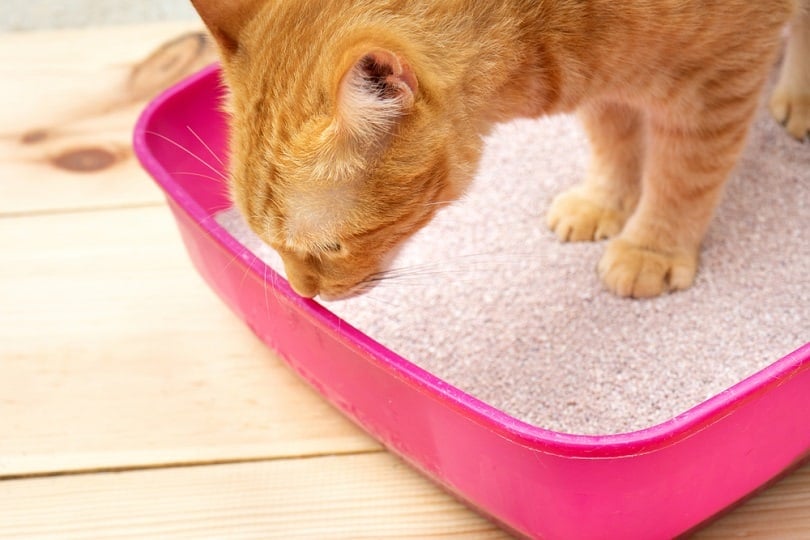
10. Pancreatitis
The pancreas plays a vital role in bodily function. It contains exocrine glands that help aid digestion and endocrine glands that produce insulin and glucagon, which maintain control of blood sugar. Pancreatitis occurs when the pancreas becomes inflamed.
In cats, pancreatitis seems to occur spontaneously with no specific cause, though it can occur in those with inflammatory bowel disease or diabetes. Pancreatitis can range from mild to severe and has the potential to be fatal. Many symptoms associated with pancreatitis are also symptoms of many other conditions, that’s why proper diagnosis and early treatment from a veterinarian are so important.
Symptoms of Pancreatitis:
- Nausea
- Vomiting
- Fever
- Lethargy
- Abdominal pain
- Diarrhea
- Lack of appetite
11. Liver Disease
The liver performs many vital bodily functions, including filtering the blood, producing bile and albumin, regulating amino acids, processing glucose, storing vitamins and minerals, regulating blood clotting, and resisting infections. Liver disease is a blanket term used to describe any condition that affects the liver and its functionality.
There are many different causes that can lead to liver disease and treatment does vary depending on the specific diagnosis. Diarrhea is commonly observed in cats that suffer from liver disease but many more common ailments can cause watery stool.
Symptoms of Liver Disease:
- Lethargy
- Changes in appetite
- Excessive thirst and/or urination
- Weight loss
- Bleeding disorders
- Vomiting and/ or Diarrhea
- Jaundice

12. Cancer
Different types of cancer can affect cats and the disease is one of the leading causes of death in senior cats. There are several factors including the feline leukemia virus, environmental toxins, and an unhealthy lifestyle that can increase the risk of cancer.
While watery stool can be one of the many symptoms associated with cancer, it’s important to note that there are many other benign causes and it’s best to reach out to your veterinarian if your cat is experiencing any unusual symptoms.
Symptoms of Cancer:
- Any lump that changes shape or size
- Any sore that does not heal
- Vomiting and/or Diarrhea
- Weight loss
- Lack of appetite
- Lethargy
- Change in bowel and/or bladder habits
- Difficulty eating and/or swallowing
- Elimination difficulty
- Unexplained bleeding or discharge
- Difficulty breathing or coughing
- Stiffness
At What Point Does Diarrhea Warrant Veterinary Attention?
When diarrhea is mild and your cat is still acting normal with a healthy appetite, you can wait and see what the next bowel movement looks like before taking any additional steps. The severity of your cat’s diarrhea and their overall health during this time will help you determine whether they should be seen at the vet. It’s recommended you call your veterinarian immediately if you notice any of the following:
- Diarrhea is accompanied by vomiting, lethargy, lack of appetite, or signs of pain
- The stool is watery, explosive, is happening frequently, or in large amounts
- The stool is dark and tarry or contains blood
- Your cat is more vulnerable to dehydration (very young, very old, has underlying health conditions)
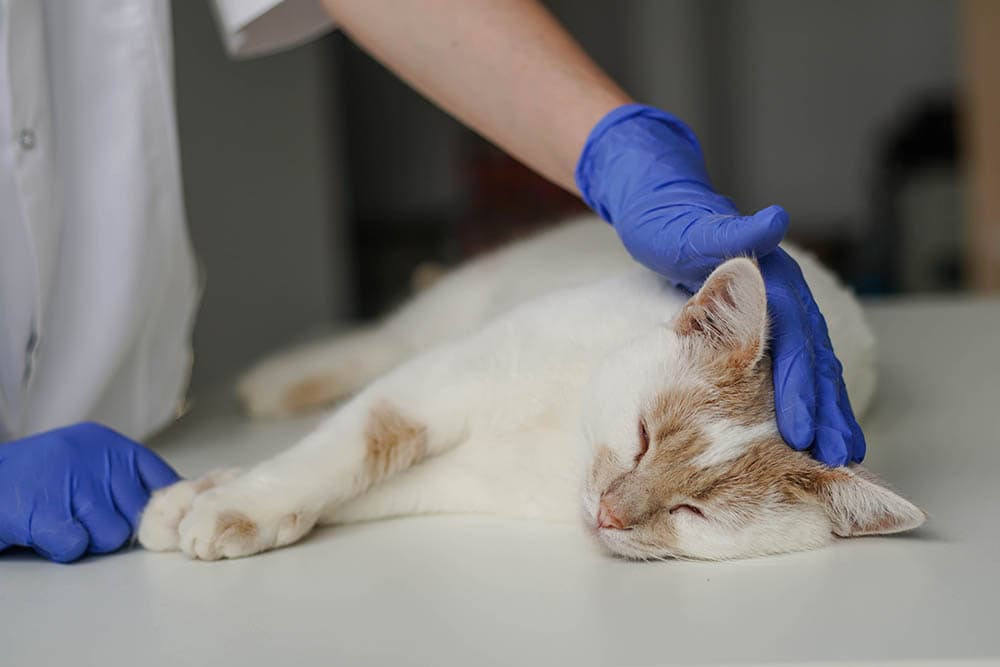
Conclusion
Watery stools can have many different causes ranging from mild to severe and the above list is not exhaustive. Generally, if you notice watery stools, it’s best to contact your veterinarian for guidance since your cat is at higher risk of dehydration and electrolyte imbalance. If you ever notice your cat is exhibiting unusual symptoms or have any concerns about your cat’s health, you should always reach out to your veterinarian for further assistance.
Featured Image Credit: NeydtStock, Shutterstock



